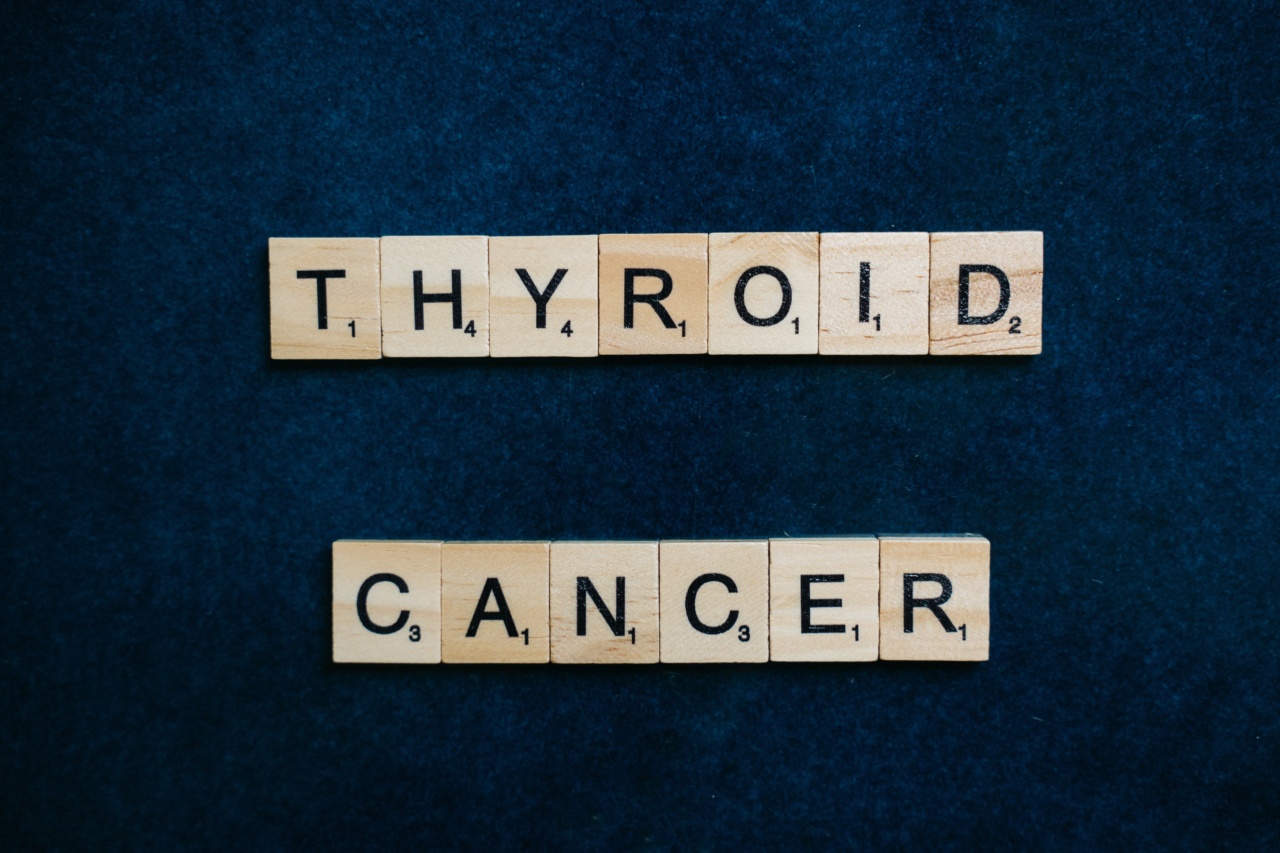Thyroid cancer is a relatively rare form of cancer that affects the thyroid gland, a small butterfly-shaped gland located in the neck.
While a diagnosis of thyroid cancer can be overwhelming, it’s important to remember that with the right information and support, many individuals are able to successfully cope with this condition. In this article, we will discuss some key points for coping with thyroid cancer, including diagnosis, treatment options, lifestyle changes, and support resources.
Diagnosis
Thyroid cancer is often detected through various diagnostic tests and examinations. These may include:.
- Physical examination: A healthcare professional may palpate the neck area, looking for any abnormalities or growths in the thyroid gland.
- Thyroid ultrasound: This imaging test uses sound waves to create images of the thyroid gland, helping to identify any suspicious nodules or masses.
- Biopsy: If a suspicious nodule is identified, a biopsy may be performed to collect a sample of the tissue for further analysis. This can help determine whether the nodule is cancerous.
Treatment Options
The treatment for thyroid cancer may vary depending on the type and stage of the cancer, as well as individual factors. Some common treatment options include:.
- Surgery: Surgery is often the primary treatment for thyroid cancer. It involves the removal of the cancerous thyroid tissue, and sometimes adjacent lymph nodes as well.
- Radioactive iodine therapy: This treatment involves the ingestion or injection of radioactive iodine, which is taken up by any remaining thyroid tissue or cancer cells. The radiation helps destroy these cells.
- External beam radiation therapy: In some cases, external radiation therapy may be used to target and kill cancer cells in the thyroid area.
- Chemotherapy: Although chemotherapy is not commonly used for thyroid cancer, it may be recommended in certain situations, such as advanced or aggressive cases.
Lifestyle Changes
Adopting certain lifestyle changes can play a significant role in coping with thyroid cancer and optimizing overall well-being. Here are a few important strategies:.
- Eating a balanced diet: Proper nutrition is essential for maintaining strength and supporting the immune system. Include a variety of fruits, vegetables, whole grains, and lean proteins.
- Regular exercise: Engaging in physical activity can improve energy levels, manage stress, and enhance overall physical and mental well-being.
- Managing stress: Find healthy ways to cope with stress, such as practicing relaxation techniques, pursuing hobbies, or seeking support from friends and family.
- Getting adequate rest: Ensure you are getting enough sleep and rest to support your body’s healing and recovery.
Monitoring and Follow-up
After the initial treatment for thyroid cancer, regular monitoring and follow-up appointments are crucial. This helps to ensure that any potential recurrence or new developments are detected early and addressed promptly.
Your healthcare team will monitor your thyroid hormone levels, perform physical examinations, and may recommend imaging tests or additional treatments if necessary.
Support Resources
Dealing with thyroid cancer can be emotionally and mentally challenging. Therefore, it’s important to seek support from various resources. Some helpful support resources include:.
- Support groups: Joining a support group can provide an opportunity to connect with others who have experienced or are currently facing similar challenges. Sharing experiences and insights can be empowering and comforting.
- Online communities: There are many online platforms where individuals living with thyroid cancer can connect, share information, and seek support from experts and fellow patients.
- Thyroid cancer organizations: Various organizations specialize in thyroid cancer support and education. They offer a wealth of information, resources, and patient services.
- Therapy or counseling: Individual therapy or counseling can help individuals navigate the emotional impact of thyroid cancer, providing support and coping strategies.
Conclusion
Coping with thyroid cancer involves understanding the diagnosis, exploring treatment options, making lifestyle changes, and seeking support.
By educating yourself about thyroid cancer and utilizing available resources, you can empower yourself to cope with the challenges and maintain a positive outlook throughout your cancer journey. Remember, you are not alone, and there is support available to help you navigate this experience.































